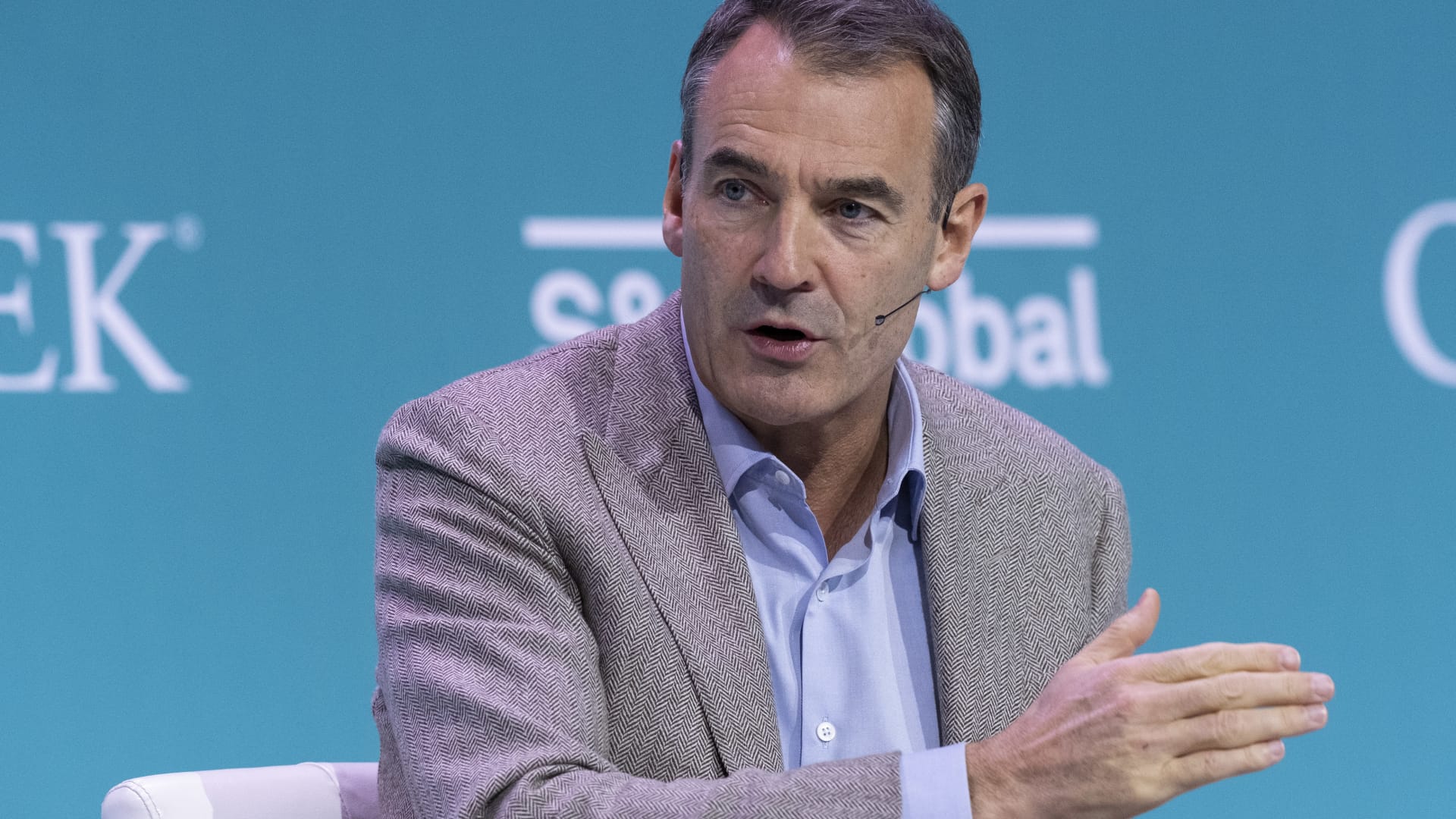BP CEO Bernard Looney is pictured in Texas on March 8, 2022. During a panel discussion on October 31, 2022, Looney said his firm’s strategy is to “invest in hydrocarbons today because today’s energy system is a hydrocarbon system.”
F. Carter Smith | Bloomberg | Getty Images
BP The strategy is focused on investing in hydrocarbon raw materials while also putting money into the planned transition to energy, the CEO of the oil and gas major said on Monday.
“What the world needs now more than ever is a conversation and a series of actions related to the practicalities and realities of today and tomorrow,” said Bernard Looney, speaking on a panel moderated by CNBC’s Hadley Gamble .
“And by that I mean our strategy as BP — which we’re implementing in the UK, which we’re working on here in the Middle East, and we’re doing it in the United States and around the world — is to invest in hydrocarbons today, because today’s the energy system is a hydrocarbon system,” he added.
Speaking at the Adipec conference in Abu Dhabi, Looney said his company is “obviously trying to produce these hydrocarbons with the lowest possible emissions” while investing in “accelerating the energy transition.”
“And we’re doing it in Britain, we’re doing it in the United States, we’re doing it here,” he said, checking out carbon capture, electric car charging, hydrogen and offshore wind.
BP, the major oil and gas producer, says it aims to become a net-zero company by 2050 or sooner. It is one of many large firms that have pledged to be net zero in recent years.
While such commitments attract attention, actually meeting them is a huge task with significant financial and logistical hurdles. The devil is in the details and targets can often be easy for the latter.
Looney’s comments about investing in hydrocarbons come at a time when high-profile figures such as UN Secretary-General Antonio Guterres are expressing their views on fossil fuels.
In June, for example, Guterres criticizes new funding for fossil fuel exploration. He called it a “delusion” and called for a divestment of fossil fuel funding.
The impact of fossil fuels on the environment is significant. The United Nations says thatsince the 19th century, “human activity has been the main driver of climate change, primarily due to the burning of fossil fuels such as coal, oil, and gas.”
Back in Abu Dhabi, BP’s Looney cited the war in Ukraine in an attempt to justify the development of a system focused on a number of sources and priorities.
“There is a saying that wars do two things: wars reveal and wars accelerate,” he said.
“And one of the things she found is that any time we focus on just one thing, that can end up being a problem,” he said.
Expanding on his point, Looney said that if he had “asked anyone in Europe two or three years ago what they wanted from energy, they would have almost exclusively said net zero.”
“If I ask them today what they want from energy, they will inevitably tell you they want an energy system that works.”
He argued that a viable energy system is “an energy system that provides the world – in this case Europe – with secure, affordable and cleaner energy”.
He later added that the planet needs a plan that focuses not only on reducing emissions, but also on safety and affordability.
“We have to be very optimistic here,” he added, noting that “many of the things that will help energy security will help a cleaner energy system.”
“Offshore wind is local, hydrogen can be local, electric vehicle charging, electrification of transportation is local, bioenergy is local — so things that contribute to a low-carbon economy also contribute to energy security.”
“And if we have a more diversified system, over time we should have a more affordable system.”
This article is first published on Source link





